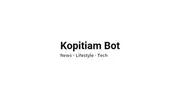Media Coverage

Bloomberg
Ronnee Ades, the director for the master of quantitative finance program at Rutgers University, and Aniket Goel, Rutgers MBA student, join Bloomberg's Julie Hyman to discuss one of the first MBA classes to focus solely on ETFs and indexing. Goel represents a student team that won a competition to create an index.

CIO
A master’s degree in SCM can help you gain an edge in a growing field. Here are the ten schools that, according to Best Colleges, offer the best master’s programs — many of which can be completed part-time and online.
You can start a career in supply chain management (SCM) with a bachelor’s degree, but if you’re looking to climb the ladder and push your career forward, you will want to explore a master’s degree in the field. SCM is becoming an important role in multiple industries, including retail, manufacturing, technology and the federal government.
If you want to expand your expertise and get ahead of the competition, here are the top ten schools where you can get a master’s degree in supply chain management, according to data from Best Colleges.
You can start a career in supply chain management (SCM) with a bachelor’s degree, but if you’re looking to climb the ladder and push your career forward, you will want to explore a master’s degree in the field. SCM is becoming an important role in multiple industries, including retail, manufacturing, technology and the federal government.
If you want to expand your expertise and get ahead of the competition, here are the top ten schools where you can get a master’s degree in supply chain management, according to data from Best Colleges.

CNBC
Karyopharm Therapeutics Inc. (Nasdaq:KPTI), a clinical-stage pharmaceutical company, today announced the appointment of Ian Karp as Vice President, Investor and Public Relations. In this role, Mr. Karp will lead all of the Company’s corporate communications activities, including corporate visibility, financial communications, and media and investor relations.
Mr. Karp holds a Bachelor of Science degree in biology from Emory University and an M.B.A. from Rutgers Business School with a concentration in pharmaceutical management.
Mr. Karp holds a Bachelor of Science degree in biology from Emory University and an M.B.A. from Rutgers Business School with a concentration in pharmaceutical management.

GlobeSt.com
The study provides critical data to better inform decision-making for the public and private sectors alike.
Municipalities may need to increase their expectations of how new multifamily construction will affect their schools, and probably should stop using a “one size fits all” model in determining the impact of multifamily construction on local school capacity, according to research released by The Center for Real Estate at Rutgers Business School.
(requires free registration)
Municipalities may need to increase their expectations of how new multifamily construction will affect their schools, and probably should stop using a “one size fits all” model in determining the impact of multifamily construction on local school capacity, according to research released by The Center for Real Estate at Rutgers Business School.
(requires free registration)

Saigon Times
HCMC - HCMC Open University and the Business and Economics Research Group are jointly organizing a Vietnam Business and Economics Research Conference (VBER2018) in HCMC from July 22 to 24.
With the theme “Financial Development & Inequality in Emerging Markets: The Facts and The Future,” the conference takes place in two venues, including Renaissance Riverside Hotel Saigon and HCMC Open University, both in District 1.
VBER2018 is a conference for academics, policymakers, practitioners and postgraduate students. This year, the conference is attended by keynote speakers, including Professor Ken Clements from the University of Western Australia and Professor Cheng-Few Lee from Rutgers University, U.S.
With the theme “Financial Development & Inequality in Emerging Markets: The Facts and The Future,” the conference takes place in two venues, including Renaissance Riverside Hotel Saigon and HCMC Open University, both in District 1.
VBER2018 is a conference for academics, policymakers, practitioners and postgraduate students. This year, the conference is attended by keynote speakers, including Professor Ken Clements from the University of Western Australia and Professor Cheng-Few Lee from Rutgers University, U.S.

The Network Journal
The Rutgers University Center for Urban Entrepreneurship and Economic Development (CUUED) has launched the Council for Urban Entrepreneurs (CUE) with the intent to provide guidance, inspiration, and educational opportunities for aspiring business owners who wish to build their organizations in urban locales.
Lyneir Richardson is the executive director of CUEED. “Our goal is to bring together successful business owners so we can study them and write case studies about how they impact economic development, create jobs and create wealth in communities,” he told TNJ.com.
Lyneir Richardson is the executive director of CUEED. “Our goal is to bring together successful business owners so we can study them and write case studies about how they impact economic development, create jobs and create wealth in communities,” he told TNJ.com.

Poets & Quants
Modern b-schools strive to be inclusive and accepting institutions. Today, admissions officers seek more than just high GPAs and test scores. They seek diversity.
Lyneir Richardson, executive director of the Center for Urban Entrepreneurship and Economic Development at Rutgers Business School in New Jersey, says another area to mention diversity issues is in the admissions interview.
“Therefore, you should express that you have a viewpoint and perspective that – if admitted – you will share with your classmates (and that you’re open to learning from others),” Richardson tells US News. “Make it clear, because of some element of your background, that you are confident and will be able to understand, survive and adjust to the environment and pace of the school.”
Lyneir Richardson, executive director of the Center for Urban Entrepreneurship and Economic Development at Rutgers Business School in New Jersey, says another area to mention diversity issues is in the admissions interview.
“Therefore, you should express that you have a viewpoint and perspective that – if admitted – you will share with your classmates (and that you’re open to learning from others),” Richardson tells US News. “Make it clear, because of some element of your background, that you are confident and will be able to understand, survive and adjust to the environment and pace of the school.”

NJBIA
A Rutgers University marketing student and a recent graduate of Ocean County College who is continuing nursing classes at Stockton University will be the 2018 recipients of the New Jersey Business & Industry Association’s Rising Star Award.
Amanda Maher, an undergraduate at Rutgers Business School in New Brunswick, is a marketing major who aspires to work in the cosmetics industry after she graduates in 2019. Maher took an important step toward her career goal by gaining hands-on experience working as a marketing operations intern at L’Oréal this summer. Maher has distinguished herself as a leader at Rutgers, where she is co-founder and vice president of Rutgers Care; community service director of Beta Gamma Sigma Honor Society; and marketing director of Women BUILD. As an employee of Rutgers Student Affairs, she has grown engagement on the Rutgers Student Food Pantry social media accounts by 311 percent and continues to spread awareness through food drives with nonprofit Foodstock NJ.
Amanda Maher, an undergraduate at Rutgers Business School in New Brunswick, is a marketing major who aspires to work in the cosmetics industry after she graduates in 2019. Maher took an important step toward her career goal by gaining hands-on experience working as a marketing operations intern at L’Oréal this summer. Maher has distinguished herself as a leader at Rutgers, where she is co-founder and vice president of Rutgers Care; community service director of Beta Gamma Sigma Honor Society; and marketing director of Women BUILD. As an employee of Rutgers Student Affairs, she has grown engagement on the Rutgers Student Food Pantry social media accounts by 311 percent and continues to spread awareness through food drives with nonprofit Foodstock NJ.

ROI
White paper finds number of children living in new rental buildings closely tied to renter household incomes, density, demographic shifts.
The number of school-age children in multifamily housing units increases with the number of bedrooms, regardless of the residents’ income level and building product type. And, if income and bedrooms are fixed, it can be shown that denser properties will have fewer school-aged children.
Those are just two of the conclusions drawn from a white paper released Thursday by the Center for Real Estate at Rutgers Business School, the institute’s effort to answer one of the most pressing questions in the industry.
The study was completed by an academic and industry team led by Morris Davis, the Paul V. Profeta Chair of Real Estate and academic director of the Rutgers Center for Real Estate.
The number of school-age children in multifamily housing units increases with the number of bedrooms, regardless of the residents’ income level and building product type. And, if income and bedrooms are fixed, it can be shown that denser properties will have fewer school-aged children.
Those are just two of the conclusions drawn from a white paper released Thursday by the Center for Real Estate at Rutgers Business School, the institute’s effort to answer one of the most pressing questions in the industry.
The study was completed by an academic and industry team led by Morris Davis, the Paul V. Profeta Chair of Real Estate and academic director of the Rutgers Center for Real Estate.

BlackNews.com
ArtUp, an award-winning Memphis-based arts innovator in conjunction with Rutgers University-Newark Center for Urban Entrepreneurship and Economic Development (CUEED), announces the new Memphis Business Hub for Creatives Program to further empower creatives to achieve business success. The Memphis Business Hub for Creatives Program leverages a leading program of the Rutgers-Newark CUEED for artists and creatives with business education tools and entrepreneurial mentorship. This combination is producing options for longer-term business sustainability for artists, creatives and their communities.
Lyneir Richardson, Rutgers-Newark CUEED Executive Director expressed, “Our intention in collaborating with ArtUp is to elevate creative people who operate in media, art and entertainment industries in Memphis. We aim to help creatives, (especially people of color) to become stronger entrepreneurs and property owners.”
Lyneir Richardson, Rutgers-Newark CUEED Executive Director expressed, “Our intention in collaborating with ArtUp is to elevate creative people who operate in media, art and entertainment industries in Memphis. We aim to help creatives, (especially people of color) to become stronger entrepreneurs and property owners.”

Public.
Rutgers University-Newark's Executive Vice Chancellor and Provost Jerome Williams has received an exclusive award for his wide range of work and achievements. The American Academy of Advertising (AAA) presented Williams with The Kim Rotzoll Award for Advertising Ethics and Social Responsibility. The award recognizes individuals or organizations who have demonstrated lifetime achievement and an outstanding commitment to advertising ethics and social responsibility.
“To be recognized for promoting the positive aspects of advertising, in the context of ethics and social responsibility, is particularly gratifying” Williams said.
“To be recognized for promoting the positive aspects of advertising, in the context of ethics and social responsibility, is particularly gratifying” Williams said.

Current Opinion in Psychology
Feeling time-pressed has become ubiquitous. Time management strategies have emerged to help individuals fit in more of their desired and necessary activities. We provide a review of these strategies. In doing so, we distinguish between two, often competing, motives people have in managing their time: activity maximization and outcome maximization.

U.S. News & World Report
Lyneir Richardson, executive director of the Center for Urban Entrepreneurship and Economic Development at Rutgers Business School in New Jersey, says that the admissions interview is an ideal time for MBA applicants to discuss diversity issues.
Richardson says that the interview helps MBA admissions officers decide whether an applicant is a good fit for their program.
"Therefore, you should express that you have a viewpoint and perspective that – if admitted – you will share with your classmates (and that you’re open to learning from others)," Richardson wrote in an email.
Richardson says that the interview helps MBA admissions officers decide whether an applicant is a good fit for their program.
"Therefore, you should express that you have a viewpoint and perspective that – if admitted – you will share with your classmates (and that you’re open to learning from others)," Richardson wrote in an email.

Harvard Law School Forum
John C. Coates is the John F. Cogan, Jr. Professor of Law and Economics at Harvard Law School; Darius Palia is Professor of Finance at Rutgers University; and Ge Wu is a Ph.D. candidate in finance at Rutgers Business School. This post is based on their recent paper.
A large financial economics literature has found that shareholders earn significant abnormal returns over the market on announcement of a merger and acquisition transaction. These studies have found that target shareholders earn positive abnormal returns of between 20 percent and 35 percent, whereas bidder shareholders earn zero to small negative abnormal returns.
We examine the impact of merger clauses on the abnormal returns earned by target and bidder firms, respectively.
A large financial economics literature has found that shareholders earn significant abnormal returns over the market on announcement of a merger and acquisition transaction. These studies have found that target shareholders earn positive abnormal returns of between 20 percent and 35 percent, whereas bidder shareholders earn zero to small negative abnormal returns.
We examine the impact of merger clauses on the abnormal returns earned by target and bidder firms, respectively.

MBA Crystal Ball
A major investment decision requires some amount of due diligence to figure out the risks as well as the returns involved, so that you have an idea of what’s in store for you and you have no unpleasant surprises later.
Financial Times (FT) releases its annual global MBA rankings for colleges/universities. Various parameters are also analyzed and colleges ranked accordingly. Value for money which is indicative of a program ROI is one such parameter. This value is calculated by dividing the post-MBA alumni salary three years after graduating by the total cost of the program. This cost would take into account the MBA tuition, and related expenses as well as the opportunity cost (forgone income during the duration of the program) minus the scholarship or any financial aid obtained.
MBA programs in USA with the best ROI
1. University of Florida: Hough
2. University of Connecticut School of Business
3. Brigham Young University: Marriott
4. University of Texas at Dallas: Jindal
5. Wisconsin School of Business
6. Georgia Institute of Technology: Scheller
7. Ohio State University: Fisher
8. Pennsylvania State University: Smeal
9. Michigan State University: Broad
10. Purdue University: Krannert
11. Arizona State University: Carey
12. University of Pittsburgh: Katz
13. Rutgers Business School
14. Rice University: Jones
15. Emory University: Goizueta
Financial Times (FT) releases its annual global MBA rankings for colleges/universities. Various parameters are also analyzed and colleges ranked accordingly. Value for money which is indicative of a program ROI is one such parameter. This value is calculated by dividing the post-MBA alumni salary three years after graduating by the total cost of the program. This cost would take into account the MBA tuition, and related expenses as well as the opportunity cost (forgone income during the duration of the program) minus the scholarship or any financial aid obtained.
MBA programs in USA with the best ROI
1. University of Florida: Hough
2. University of Connecticut School of Business
3. Brigham Young University: Marriott
4. University of Texas at Dallas: Jindal
5. Wisconsin School of Business
6. Georgia Institute of Technology: Scheller
7. Ohio State University: Fisher
8. Pennsylvania State University: Smeal
9. Michigan State University: Broad
10. Purdue University: Krannert
11. Arizona State University: Carey
12. University of Pittsburgh: Katz
13. Rutgers Business School
14. Rice University: Jones
15. Emory University: Goizueta

Metropolis
Leading thinkers and agitators in migration, diversity and integration will debate the latest research, challenges and successes from across the globe, when international and national academics, practitioners and community representatives converge in Sydney this October.
They will be joined by award-winning author and Distinguished Professor of Management and Global Business at Rutgers Business School, USA Dr. Nancy DiTomaso, who will address how business and migration in the 21st Century intersect.
They will be joined by award-winning author and Distinguished Professor of Management and Global Business at Rutgers Business School, USA Dr. Nancy DiTomaso, who will address how business and migration in the 21st Century intersect.

TAPinto.net
For years now, attorney and Black Parents Workshop head Walter Fields has been litigating against academic levels in the South Orange-Maplewood School District with the U.S. Department of Education, and more recently in federal court, on the basis that higher level honors and AP classes have fewer black students in them.
Given binding Supreme Court precedent, though, including the Parents Involved v. Seattle School District and Meredith v. Jefferson County cases in 2007, which struck down two race-based school integration plans as unconstitutional, there is no good legal basis for the assertion in the Fields litigation that academic levels in South Orange and Maplewood violate the law.
Wayne Eastman holds a J.D. from Harvard Law School, and is a professor at Rutgers Business School where he teaches business law and business ethics.
Given binding Supreme Court precedent, though, including the Parents Involved v. Seattle School District and Meredith v. Jefferson County cases in 2007, which struck down two race-based school integration plans as unconstitutional, there is no good legal basis for the assertion in the Fields litigation that academic levels in South Orange and Maplewood violate the law.
Wayne Eastman holds a J.D. from Harvard Law School, and is a professor at Rutgers Business School where he teaches business law and business ethics.

Wallet Hub
Balance transfer credit cards have a lot of moving parts, including a balance transfer APR, balance transfer fee, annual fee and, potentially, introductory rates and fees. Plus, offers change regularly.
What’s the best way to find the best balance transfer credit card?
Dr. John Longo is a Professor of Professional Practice in the Finance & Economics Department at Rutgers Business School.
"Many websites compare balance transfer credit cards. When looking for a card, a person should keep in mind their objective in doing the balance transfer. Hopefully, that objective is to pay off their debt faster. In that case, one should select the credit card that gives an introductory rate period that allows the balance to be paid off. If the balance, including new purchases and their interest, cannot be paid off in that time, one should not do the transfer."
What’s the best way to find the best balance transfer credit card?
Dr. John Longo is a Professor of Professional Practice in the Finance & Economics Department at Rutgers Business School.
"Many websites compare balance transfer credit cards. When looking for a card, a person should keep in mind their objective in doing the balance transfer. Hopefully, that objective is to pay off their debt faster. In that case, one should select the credit card that gives an introductory rate period that allows the balance to be paid off. If the balance, including new purchases and their interest, cannot be paid off in that time, one should not do the transfer."

NASDAQ
The Hershey Company (NYSE:HSY) today announced that Damien Atkins has been named Senior Vice President, General Counsel and Secretary, effective August 13. In his new role, Atkins will lead Hershey's legal, government relations, and corporate secretary functions.
Atkins brings 20 years of legal experience to his new role at Hershey. Most recently, he was General Counsel and Corporate Secretary for Panasonic Corporation of North America.
Atkins serves on the Board of Directors for the Minority Corporate Counsel Association; Habitat for Humanity, Newark; Rutgers Law School Center for Corporate Law and Governance; and is Vice-Chair for the Institute for Ethical Leadership at Rutgers Business School.
Atkins brings 20 years of legal experience to his new role at Hershey. Most recently, he was General Counsel and Corporate Secretary for Panasonic Corporation of North America.
Atkins serves on the Board of Directors for the Minority Corporate Counsel Association; Habitat for Humanity, Newark; Rutgers Law School Center for Corporate Law and Governance; and is Vice-Chair for the Institute for Ethical Leadership at Rutgers Business School.

Science Daily
Everyone's so busy these days that it is easy to think you need to schedule time to have fun.
But be careful about how you do that, said Selin Malkoc, a time management expert at The Ohio State University's Fisher College of Business.
In an invited article in the journal Current Opinion in Psychology, she and Gabriela Tonietto of Rutgers Business School evaluated recent research that shows how people can find time for leisure and still keep it fun.
They recommended three keys:
Schedule more roughly.
Avoid hard stops.
Focus on the now.
But be careful about how you do that, said Selin Malkoc, a time management expert at The Ohio State University's Fisher College of Business.
In an invited article in the journal Current Opinion in Psychology, she and Gabriela Tonietto of Rutgers Business School evaluated recent research that shows how people can find time for leisure and still keep it fun.
They recommended three keys:
Schedule more roughly.
Avoid hard stops.
Focus on the now.

BizEd, AACSB International
THE DATA IS IN: Thirty percent of incoming freshmen at U.S. higher education institutions are the first in their families to attend college, according to the National Center for Education Statistics. Unfortunately, the first-year dropout rate for these students is four times that of their next-generation peers. Only 11 percent will complete their bachelor’s degrees in six years or less.
Two schools—Boston University’s Questrom School of Business in Massachusetts and Rutgers Business School in Newark and New Brunswick, New Jersey—recently adopted new approaches for serving first-gen populations. Although their initiatives have been in place for only a short time, the schools already are seeing positive results in the form of higher rates of enrollment, retention, and on-time degree completion.
At Rutgers Business School (RBS) at Rutgers University in New Jersey, the key to supporting first-generation students is a suite of programs called RBS-PLUS (Pathways Leading to Undergraduate Success), launched in 2013. Delivered through the business school’s office of diversity, RBS-PLUS doesn’t just support its current first-generation and low-income undergraduates. It also reaches out to high school students to offer guidance just as they’re beginning their college preparation.
"It’s a “power-packed program,” says Charles Brown, assistant dean for diversity programs.
Two schools—Boston University’s Questrom School of Business in Massachusetts and Rutgers Business School in Newark and New Brunswick, New Jersey—recently adopted new approaches for serving first-gen populations. Although their initiatives have been in place for only a short time, the schools already are seeing positive results in the form of higher rates of enrollment, retention, and on-time degree completion.
At Rutgers Business School (RBS) at Rutgers University in New Jersey, the key to supporting first-generation students is a suite of programs called RBS-PLUS (Pathways Leading to Undergraduate Success), launched in 2013. Delivered through the business school’s office of diversity, RBS-PLUS doesn’t just support its current first-generation and low-income undergraduates. It also reaches out to high school students to offer guidance just as they’re beginning their college preparation.
"It’s a “power-packed program,” says Charles Brown, assistant dean for diversity programs.

New Jersey Business
Going forward, from an estate planning perspective, the vast majority of New Jersey residents will encounter a world void of estate tax exposure. The recently passed Tax Cuts and Jobs Act, which was signed into law at the end of 2017, raises the amount every taxpayer can gift or bequeath tax-free to $11, 180, 000 and, furthermore, in 2016 the New Jersey Legislature eliminated the state's estate tax, effective in 2018. The combination of these federal and state legislative initiatives fundamentally changes how state residents will orchestrate their testamentary affairs.

Business News Daily
Amid the turmoil caused by a recent spate of tariffs, there has been a great deal of news, analysis, and speculation surrounding financial markets and large industries. It might have left small businesses wondering what are these tariffs and what do they mean for my business?
"When the elephants dance, everybody gets shaken up," said Lyneir Richardson, executive director of the Center for Urban Entrepreneurship and Economic Development at Rutgers Business School. "In this instance, [small businesses are often] dealing with the supply chain asking for higher costs that cannot be quickly passed onto customers. It means more time thinking about pricing, renegotiating and managing cash flow."
"When the elephants dance, everybody gets shaken up," said Lyneir Richardson, executive director of the Center for Urban Entrepreneurship and Economic Development at Rutgers Business School. "In this instance, [small businesses are often] dealing with the supply chain asking for higher costs that cannot be quickly passed onto customers. It means more time thinking about pricing, renegotiating and managing cash flow."

NDTV, New Delhi Television
IIMA "Young Alumni Achiever's Awards 2018" were presented yesterday to seven alumni from the institute.
Ms. Anuradha Chugh (currently the MD, Ben & Jerry's), Mr. Prakash Jhanwar (currently Regional Head - South East Asia and China, Olam International), Mr. Utsav Baijal (currently Partner, Apollo Management/Aion Capital, USA/India), Mr. Kuldeep Jain (Founder and CEO, Cleanmax Solar), Mr. Manish Gupta (Co - founder & CEO, Indegene), and Prof. Ashwani Monga (Vice Dean for Academic Programs and Innovations, Rutgers Business School, Newark and New Brunswick) were among the awardees this year.
Ms. Anuradha Chugh (currently the MD, Ben & Jerry's), Mr. Prakash Jhanwar (currently Regional Head - South East Asia and China, Olam International), Mr. Utsav Baijal (currently Partner, Apollo Management/Aion Capital, USA/India), Mr. Kuldeep Jain (Founder and CEO, Cleanmax Solar), Mr. Manish Gupta (Co - founder & CEO, Indegene), and Prof. Ashwani Monga (Vice Dean for Academic Programs and Innovations, Rutgers Business School, Newark and New Brunswick) were among the awardees this year.

Times of India
Ahmedabad: They became successful managers, academicians, entrepreneurs and even pursued offbeat career of an author. However, what bound the seven Young Alumni Achievers Award recipients at IIM Ahmedabad on Tuesday was their passion for chosen field and love for alma mater.
This year’s recipients included Anuradha Chugh, MD of Ben & Jerry’s; Prakash Jhanwer, regional head - Southeast Asia and China, Olam International; Utsav Baijal, partner, US-based Apollo Management; Kuldeep Jain, founder and CEO, Cleanmax Solar; Manish Gupta, founder and CEO, Indegene; Ashwani Monga, vice dean (academic programs) of Rutgers Business School; and Chetan Bhagat, renowned author.
This year’s recipients included Anuradha Chugh, MD of Ben & Jerry’s; Prakash Jhanwer, regional head - Southeast Asia and China, Olam International; Utsav Baijal, partner, US-based Apollo Management; Kuldeep Jain, founder and CEO, Cleanmax Solar; Manish Gupta, founder and CEO, Indegene; Ashwani Monga, vice dean (academic programs) of Rutgers Business School; and Chetan Bhagat, renowned author.

Biznology
I teach classes for the Rutgers Business School Executive Education, so I cross paths with savvy digital marketers on a constant basis. I have been asking them the same question for the last three years, “If people are really getting creeped out by the way marketers are sneaking around with their data, how come no one has started a business around data privacy?” And I never really got an answer that I understood. Not once.
The basis for my question is that most students in the class were unnerved by Google reading their emails and Facebook knowing who their friends are, but no one ever quit Google or Facebook. Why? Because no good alternative existed. At least that’s what they told me.
But I wanted to understand why. Why does no good alternative exist?
The basis for my question is that most students in the class were unnerved by Google reading their emails and Facebook knowing who their friends are, but no one ever quit Google or Facebook. Why? Because no good alternative existed. At least that’s what they told me.
But I wanted to understand why. Why does no good alternative exist?

Digital Journal
The Rutgers University Center for Urban Entrepreneurship and Economic Development (CUEED) – America’s first and only program to integrate academia, the private sector, government organizations, and non-profit partners to stimulate urban economic growth through entrepreneurship – has created its Council of Urban Entrepreneurs.
The purpose of the Council will be to provide guidance, inspiration, and education opportunities for aspiring business owners who wish to build their organizations in urban locales.
“Since its founding in 2008, CUEED has helped 370 New Jersey area entrepreneurs to create 580 jobs in urban locales and generate over $137MM in revenue,” says Lyneir Richardson, Executive Director of CUEED.
The purpose of the Council will be to provide guidance, inspiration, and education opportunities for aspiring business owners who wish to build their organizations in urban locales.
“Since its founding in 2008, CUEED has helped 370 New Jersey area entrepreneurs to create 580 jobs in urban locales and generate over $137MM in revenue,” says Lyneir Richardson, Executive Director of CUEED.

Xinhua.net
The U.S. government's recent move to impose controversial tariffs on imports from China shows it suffers from misconceptions about trade relations, a U.S. academic said.
On Tuesday, the United States threatened to slap an additional 10-percent tariff on 200 billion U.S. dollars worth of Chinese goods. It has been long complaining of being taken advantage of by many of its trading partners, and "suffering" from trade deficit.
However, Farok J. Contractor, a professor in Rutgers Business School's management and global business department, said "suffer is the wrong word."
"Millions of Chinese workers toil for about two to five dollars an hour on behalf of American people that buy a lot of reasonably well-made Chinese products and have in material terms a higher standard of living," Contractor said, pointing out that while the United States has a trade deficit with China in merchandise, it enjoys a surplus in services.
In an article on his website Globalbusiness.blog, Contractor listed how U.S. consumers "enjoy" rather than "suffer" from the trade deficit.
On Tuesday, the United States threatened to slap an additional 10-percent tariff on 200 billion U.S. dollars worth of Chinese goods. It has been long complaining of being taken advantage of by many of its trading partners, and "suffering" from trade deficit.
However, Farok J. Contractor, a professor in Rutgers Business School's management and global business department, said "suffer is the wrong word."
"Millions of Chinese workers toil for about two to five dollars an hour on behalf of American people that buy a lot of reasonably well-made Chinese products and have in material terms a higher standard of living," Contractor said, pointing out that while the United States has a trade deficit with China in merchandise, it enjoys a surplus in services.
In an article on his website Globalbusiness.blog, Contractor listed how U.S. consumers "enjoy" rather than "suffer" from the trade deficit.

U.S.1 - PrincetonInfo.com
Nell Painter enjoyed a celebrated career as professor of American history at Princeton University. But after decades of earning fellowships and honors and publishing nine scholarly books, her last name came calling. Painter embarked on a new chapter of life: to become an artist.
Her Ph.D. from Harvard wouldn’t be enough to get her into a good M.F.A. program, so at the age of 64, Painter — whose books included the New York Times bestseller “The History of White People” — enrolled as an undergraduate at Mason Gross School of the Arts at Rutgers.
Her Ph.D. from Harvard wouldn’t be enough to get her into a good M.F.A. program, so at the age of 64, Painter — whose books included the New York Times bestseller “The History of White People” — enrolled as an undergraduate at Mason Gross School of the Arts at Rutgers.

Qatar Tribune
Have you ever decided to take the next hour before you have to go to get something done, and then mysteriously failed to accomplish anything? If so, you're not alone. This phenomenon, when knowing that the available time has a limit keeps you from using it to its fullest, is the subject of a new study in the "Journal of Consumer Research."
Gabriela Tonietto, a professor of marketing at Rutgers Business School, began the research while she was working on her PhD. "This is the second half of my dissertation," she says, "which is somewhat inspired by me trying to work on the first half of my dissertation."
Gabriela Tonietto, a professor of marketing at Rutgers Business School, began the research while she was working on her PhD. "This is the second half of my dissertation," she says, "which is somewhat inspired by me trying to work on the first half of my dissertation."
MyCentralJersey.com
The New Jersey Banker's Association held its eighth annual Women in Banking (WIB) Conference last week on Wednesday at The Palace at Somerset Park. The day event was meant to help participants stand tall in an industry dominated by men.
Dr. Patti Ippoliti, president of PI Associates, LLC and assistant professor of professional practice with the Management & Global Business department at Rutgers Business School, led a breakout session.
"It is more important than ever to hold yourselves, and others, accountable," said Ippoliti.
Dr. Patti Ippoliti, president of PI Associates, LLC and assistant professor of professional practice with the Management & Global Business department at Rutgers Business School, led a breakout session.
"It is more important than ever to hold yourselves, and others, accountable," said Ippoliti.

NPR, Here & Now
Minority groups, including biracial families and the LGBT community, say they continue to be let down by brands that fail to create diverse and inclusive advertising. But those complaints are leading some companies to change their ad strategies.
Here & Now's Robin Young speaks with Jerome Williams, executive vice chancellor and provost at Rutgers University Newark and former chair of the board of trustees of the American Marketing Association, about what's happening.
Here & Now's Robin Young speaks with Jerome Williams, executive vice chancellor and provost at Rutgers University Newark and former chair of the board of trustees of the American Marketing Association, about what's happening.

Medical Health News
Rutgers University-Newark’s Executive Vice Chancellor and Provost Jerome Williams has been recognized for career-long impact and excellence by the American Marketing Association’s Marketing and Society Special Interest Group (MASSIG) as the winner of its Lifetime Achievement Award. An internationally esteemed scholar, teacher, and leader in business education, Williams is also the Distinguished Professor and Prudential Chair in Business at Rutgers Business School.
“I’m truly honored to be included in the esteemed list of winners of this prestigious award,” Williams remarked. “Many of the past recipients have been mentors to me and whose work has been the foundation of my own work. I’m especially honored to be able to continue this work at Rutgers-Newark, where social justice is a core value and where my research is so much in line with the strategic initiatives of an anchor institution, with an emphasis on publicly-engaged scholarship.”
“I’m truly honored to be included in the esteemed list of winners of this prestigious award,” Williams remarked. “Many of the past recipients have been mentors to me and whose work has been the foundation of my own work. I’m especially honored to be able to continue this work at Rutgers-Newark, where social justice is a core value and where my research is so much in line with the strategic initiatives of an anchor institution, with an emphasis on publicly-engaged scholarship.”

The Atlantic
Have you ever decided to take the next hour before you have to go to get something done, and then mysteriously failed to accomplish anything? If so, you're not alone. This phenomenon, when knowing that the available time has a limit keeps you from using it to its fullest, is the subject of a new study in the Journal of Consumer Research.
Gabriela Tonietto, a professor of marketing at Rutgers Business School, began the research while she was working on her Ph.D. “This is the second half of my dissertation,” she says, “which is somewhat inspired by me trying to work on the first half of my dissertation.”
Gabriela Tonietto, a professor of marketing at Rutgers Business School, began the research while she was working on her Ph.D. “This is the second half of my dissertation,” she says, “which is somewhat inspired by me trying to work on the first half of my dissertation.”

Rutgers Magazine
"Injustices in the Workplace"
Nancy DiTomaso, Distinguished Professor, Department of Management and Global Business, Rutgers Business School–Newark and New Brunswick
Dana Britton, Director, Center for Women and Work, School of Management and Labor Relations
The dramatic strides women have made in the workforce can be seen in their increase from 33 percent of American workers in 1948 to 47 percent of the workforce in 2018. But a gender gap in both wages and authority remains. And although the gaps exist across virtually all occupations, the percentage of disparity is actually greatest for those in highly skilled, highly paid positions.
Nancy DiTomaso, Distinguished Professor, Department of Management and Global Business, Rutgers Business School–Newark and New Brunswick
Dana Britton, Director, Center for Women and Work, School of Management and Labor Relations
The dramatic strides women have made in the workforce can be seen in their increase from 33 percent of American workers in 1948 to 47 percent of the workforce in 2018. But a gender gap in both wages and authority remains. And although the gaps exist across virtually all occupations, the percentage of disparity is actually greatest for those in highly skilled, highly paid positions.

William Davidson Institution
A case study by a Rutgers Business School professor about a start-up enterprise in Pakistan and its quest to be self-sustaining after 12 months has won first place in the WDI 25th Anniversary Case Competition.
“Roshni Rides: Pricing Transportation for the Underserved,” by Can Uslay examined how the enterprise, which provides affordable, dignified transportation to refugees and was awarded the $1 million Hult Prize in 2017, dealt with many challenges as it prepared to launch. For the case, Uslay followed the Roshni Rides team as it tried to find a price point that made it affordable to its customers while also generating enough money to make future expansion possible.
“Roshni Rides wants to restore the dignity of refugees by providing accessible, affordable, and reliable transportation, one ride at a time,” Uslay said. “For me, it was great to be able to create a case study to convey their powerful story which will resonate with more people as a result of this win.”
“Roshni Rides: Pricing Transportation for the Underserved,” by Can Uslay examined how the enterprise, which provides affordable, dignified transportation to refugees and was awarded the $1 million Hult Prize in 2017, dealt with many challenges as it prepared to launch. For the case, Uslay followed the Roshni Rides team as it tried to find a price point that made it affordable to its customers while also generating enough money to make future expansion possible.
“Roshni Rides wants to restore the dignity of refugees by providing accessible, affordable, and reliable transportation, one ride at a time,” Uslay said. “For me, it was great to be able to create a case study to convey their powerful story which will resonate with more people as a result of this win.”

Daily Clicks
When discussing digital transformation, it’s impossible not to discuss social selling and its impact on the sales cycle. In fact, sales reps who utilize social selling are 23 percent more likely to hit their targets than those who do not.
Despite these statistics, formal training programs on social selling are hard to come across… until now! Social selling expert, Neal Schaffer, has teamed up with Rutgers Business School Executive Education to create an eight week executive course dedicated to training organizations and professionals how to maximize social selling efforts and calculate ROI of those programs. Schaffer is one of the World’s best social media strategists. He has written about (Maximizing LinkedIn for Sales and Social Media Marketing) and is an experienced corporate trainer on social selling and is also considered a leading Social Selling Influencer by Forbes.
Despite these statistics, formal training programs on social selling are hard to come across… until now! Social selling expert, Neal Schaffer, has teamed up with Rutgers Business School Executive Education to create an eight week executive course dedicated to training organizations and professionals how to maximize social selling efforts and calculate ROI of those programs. Schaffer is one of the World’s best social media strategists. He has written about (Maximizing LinkedIn for Sales and Social Media Marketing) and is an experienced corporate trainer on social selling and is also considered a leading Social Selling Influencer by Forbes.

NPR
There is one question parents rarely answer truthfully. Do you play favorites with your kids? Overwhelmingly, parents say no. But what does the research say? Our co-host Steve Inskeep talked about it with NPR's Shankar Vedantam.
VEDANTAM: In this case, we're looking at gender favoritism, Steve. I was speaking with Kristina Durante. She's a marketing professor at Rutgers Business School.
DURANTE: In the United States and in India, we found that there was a sex-matching bias such that fathers were significantly more likely to choose that the Treasury bond should be allocated to their son, whereas mothers were significantly more likely to choose that the treasury bonds should go to their daughter.
VEDANTAM: In this case, we're looking at gender favoritism, Steve. I was speaking with Kristina Durante. She's a marketing professor at Rutgers Business School.
DURANTE: In the United States and in India, we found that there was a sex-matching bias such that fathers were significantly more likely to choose that the Treasury bond should be allocated to their son, whereas mothers were significantly more likely to choose that the treasury bonds should go to their daughter.

HobNob Nashville
You’ve got a full hour until your next meeting. But you probably won’t make the most of that time, new research suggests.
“We figure something might come up, we might need some extra time, even when there’s no need to do that. As a result, we do less with the available time,” Selin Malkoc.
Malkoc conducted the study with Gabriella Tonietto, assistant professor of marketing at Rutgers Business School-Newark and New Brunswick, and Stephen Nowlis, professor of marketing at Washington University’s Olin Business School.
“We figure something might come up, we might need some extra time, even when there’s no need to do that. As a result, we do less with the available time,” Selin Malkoc.
Malkoc conducted the study with Gabriella Tonietto, assistant professor of marketing at Rutgers Business School-Newark and New Brunswick, and Stephen Nowlis, professor of marketing at Washington University’s Olin Business School.

Kopitiam Bot
Have you ever wondered if your mother has a favorite child –and it’s not you?
It’s a topic two academics have been closely studying for the past two decades.
And what did they learn? Moms do have a favorite child. In general, “daughters were overwhelmingly chosen over sons,” says Suitor.
“We found that the effect was very robust in four different experiments and across cultures,” says researcher Kristina Durante, an associate professor of marketing at Rutgers Business School in New Jersey. “The bias toward investing in same-gendered children occurs because women identify more with and see themselves in their daughters, and the same goes for men and sons.”
It’s a topic two academics have been closely studying for the past two decades.
And what did they learn? Moms do have a favorite child. In general, “daughters were overwhelmingly chosen over sons,” says Suitor.
“We found that the effect was very robust in four different experiments and across cultures,” says researcher Kristina Durante, an associate professor of marketing at Rutgers Business School in New Jersey. “The bias toward investing in same-gendered children occurs because women identify more with and see themselves in their daughters, and the same goes for men and sons.”

COMMPRO
Life doesn’t stop once a PR agency has been acquired. Its CEO and entire staff become integrated into the buyer’s organization and life becomes quite different.
Grace Leong’s firm Hunter PR was acquired by MDC Partners several years ago. Learn from Grace firsthand how sellers can make being acquired work. Grace is one of the most respected agency heads in the industry. Here words of wisdom will teach you how and what to do to make being acquired exciting, stimulating, motivating and financially rewarding.
Q3: You hold an MBA from Rutgers University. With such a passion for marketing and building brands, why didn’t you become a brand manager?
I am a brand manager! And it’s not because of my MBA—it’s because I help my clients manage their brands through a PR lens. What story are we trying to tell about this brand and how can we do it efficiently using the power of word-of-mouth and the media? So, I am a brand manager—just not a traditional one holding a brand management position at a CPG company.
Grace Leong’s firm Hunter PR was acquired by MDC Partners several years ago. Learn from Grace firsthand how sellers can make being acquired work. Grace is one of the most respected agency heads in the industry. Here words of wisdom will teach you how and what to do to make being acquired exciting, stimulating, motivating and financially rewarding.
Q3: You hold an MBA from Rutgers University. With such a passion for marketing and building brands, why didn’t you become a brand manager?
I am a brand manager! And it’s not because of my MBA—it’s because I help my clients manage their brands through a PR lens. What story are we trying to tell about this brand and how can we do it efficiently using the power of word-of-mouth and the media? So, I am a brand manager—just not a traditional one holding a brand management position at a CPG company.

Inc. Southeast Asia
Have you ever wondered if your mother has a favorite child –and it’s not you?
It’s a topic two academics have been closely studying for the past two decades.
And what did they learn? Moms do have a favorite child. In general, “daughters were overwhelmingly chosen over sons,” says Suitor.
“We found that the effect was very robust in four different experiments and across cultures,” says researcher Kristina Durante, an associate professor of marketing at Rutgers Business School in New Jersey. “The bias toward investing in same-gendered children occurs because women identify more with and see themselves in their daughters, and the same goes for men and sons.”
It’s a topic two academics have been closely studying for the past two decades.
And what did they learn? Moms do have a favorite child. In general, “daughters were overwhelmingly chosen over sons,” says Suitor.
“We found that the effect was very robust in four different experiments and across cultures,” says researcher Kristina Durante, an associate professor of marketing at Rutgers Business School in New Jersey. “The bias toward investing in same-gendered children occurs because women identify more with and see themselves in their daughters, and the same goes for men and sons.”

Inc.
Have you ever wondered if your mother has a favorite child –and it’s not you?
It’s a topic two academics have been closely studying for the past two decades.
And what did they learn? Moms do have a favorite child. In general, “daughters were overwhelmingly chosen over sons,” says Suitor.
“We found that the effect was very robust in four different experiments and across cultures,” says researcher Kristina Durante, an associate professor of marketing at Rutgers Business School in New Jersey. “The bias toward investing in same-gendered children occurs because women identify more with and see themselves in their daughters, and the same goes for men and sons.”
It’s a topic two academics have been closely studying for the past two decades.
And what did they learn? Moms do have a favorite child. In general, “daughters were overwhelmingly chosen over sons,” says Suitor.
“We found that the effect was very robust in four different experiments and across cultures,” says researcher Kristina Durante, an associate professor of marketing at Rutgers Business School in New Jersey. “The bias toward investing in same-gendered children occurs because women identify more with and see themselves in their daughters, and the same goes for men and sons.”

The Evolllution
With the passage of the Post 9/11 GI Bill, institutions of higher education experienced a 42-percent increase of military-affiliated students onto their campuses.
Some intuitions of higher education were able to respond by expanding programs and services, and establishing offices dedicated to serving a military-affiliated student population.
So, what then, are institutions that do not have the resources to do?
The authors provide four tangible actions.
Ann Treadaway, Director of Veteran and Military Programs, Rutgers University and Margaret O'Donnell, Manager of Military and Veteran Engagement Programs in Rutgers Business School, Rutgers University
Some intuitions of higher education were able to respond by expanding programs and services, and establishing offices dedicated to serving a military-affiliated student population.
So, what then, are institutions that do not have the resources to do?
The authors provide four tangible actions.
Ann Treadaway, Director of Veteran and Military Programs, Rutgers University and Margaret O'Donnell, Manager of Military and Veteran Engagement Programs in Rutgers Business School, Rutgers University

The Washington Post
Suppose you have two tasks before you. One isn’t that important but needs to be done quickly. The other is important but isn’t urgent. Often, people will choose against their self-interest to do the urgent but less important task, a new study has demonstrated. What’s more, the busier and more overwhelmed you feel, the more likely you are to pick the urgent task.
This idea of urgency bias, of course, is not new to consumer and behavioral research. It is, for example, why stores offer limited-time sales, and why hosts on Home Shopping Network say, “Call now while supplies last.”
Ashwani Monga, who was not involved in the new study but is a longtime consumer researcher at Rutgers Business School, said the "interesting finding here isn’t just that time durations are a factor in decision-making but that they can actually change the calculus of decision-making.”
This idea of urgency bias, of course, is not new to consumer and behavioral research. It is, for example, why stores offer limited-time sales, and why hosts on Home Shopping Network say, “Call now while supplies last.”
Ashwani Monga, who was not involved in the new study but is a longtime consumer researcher at Rutgers Business School, said the "interesting finding here isn’t just that time durations are a factor in decision-making but that they can actually change the calculus of decision-making.”

CFO
The finance department must play a central role in surmounting challenges to successful implementation of strategic priorities.
Some companies tap the finance department mostly for raising capital, closing books, and implementing controls. And it’s true, of course, that a key function of finance is ensuring accurate reporting and preservation of capital and assets.
However, the CFO and his or her team can and should be a partner to the CEO when it comes to developing strategy — and, more importantly, executing it.
Some companies tap the finance department mostly for raising capital, closing books, and implementing controls. And it’s true, of course, that a key function of finance is ensuring accurate reporting and preservation of capital and assets.
However, the CFO and his or her team can and should be a partner to the CEO when it comes to developing strategy — and, more importantly, executing it.

Ohio State News
You’ve got a full hour until your next meeting. But you probably won’t make the most of that time, new research suggests.
In a series of eight studies, both in the lab and real life, researchers found that free time seems shorter to people when it comes before a task or appointment on their calendar.
“We seem to take a mental tax out of our time right before an appointment,” said Selin Malkoc, co-author of the study and associate professor of marketing at The Ohio State University’s Fisher College of Business.
Malkoc conducted the study with Gabriella Tonietto, assistant professor of marketing at Rutgers Business School-Newark and New Brunswick, and Stephen Nowlis, professor of marketing at Washington University’s Olin Business School.
In a series of eight studies, both in the lab and real life, researchers found that free time seems shorter to people when it comes before a task or appointment on their calendar.
“We seem to take a mental tax out of our time right before an appointment,” said Selin Malkoc, co-author of the study and associate professor of marketing at The Ohio State University’s Fisher College of Business.
Malkoc conducted the study with Gabriella Tonietto, assistant professor of marketing at Rutgers Business School-Newark and New Brunswick, and Stephen Nowlis, professor of marketing at Washington University’s Olin Business School.

The CPA Journal
The need for governmental accounting education has never been greater in the United States, as governments at the federal, state, and local levels face a wave of impending personnel retirements.
As the director of the Rutgers Master in Accountancy in Governmental Accounting Program, the author is increasingly aware of the need for the academic training of governmental accounting and auditing professionals in the public sector.
The need to academically prepare the next generation of government accountants and raise interest among students in serving in governmental accounting positions should be a priority for the accounting profession as a whole. Given the financial challenges that all levels of governments currently face, this is truly an urgent task.
As the director of the Rutgers Master in Accountancy in Governmental Accounting Program, the author is increasingly aware of the need for the academic training of governmental accounting and auditing professionals in the public sector.
The need to academically prepare the next generation of government accountants and raise interest among students in serving in governmental accounting positions should be a priority for the accounting profession as a whole. Given the financial challenges that all levels of governments currently face, this is truly an urgent task.

Financial Times
There are specific reasons why students enter the Hult Prize. “They are looking for careers that focus on more than the bottom line,” says Ahmad Ashkar, founder and chief executive. “They want to produce economic return and sustainable, social impact. Entrepreneurship is a way for them to do that.”
One example is Roshni Rides, a rickshaw transportation business that helps refugees in south Asia get to important locations, such as hospitals, using pre-paid transaction cards. It was founded by Rutgers Business School students, who won last year’s grand Hult Prize — $1m in funding.
One example is Roshni Rides, a rickshaw transportation business that helps refugees in south Asia get to important locations, such as hospitals, using pre-paid transaction cards. It was founded by Rutgers Business School students, who won last year’s grand Hult Prize — $1m in funding.

Rutgers University - Newark News
By the end of May 2018, thousands of extraordinary students will have received bachelor’s, master’s, or doctoral degrees from Rutgers University–Newark. Here is an introduction to a few of them.
Sheila Zegarra
Rutgers Business School
At a young age, Sheila Zegarra questioned everything and never took “no” for an answer. She continually uses her passion and drive as motivation to be her very best in all aspects of her life. As a result of her hard work and excellent academic standing, Zegarra was able to take college courses as a high school senior. She always had an entrepreneurial spirit, and through her exposure to college business courses, realized her aptitude for management and leadership. Unsurprisingly, in May she will be graduating from Rutgers Business School with a bachelor’s degree in business management and global business
Sheila Zegarra
Rutgers Business School
At a young age, Sheila Zegarra questioned everything and never took “no” for an answer. She continually uses her passion and drive as motivation to be her very best in all aspects of her life. As a result of her hard work and excellent academic standing, Zegarra was able to take college courses as a high school senior. She always had an entrepreneurial spirit, and through her exposure to college business courses, realized her aptitude for management and leadership. Unsurprisingly, in May she will be graduating from Rutgers Business School with a bachelor’s degree in business management and global business